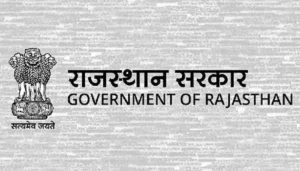Rajasthan state government has initiated the process of granting temporary status to daily wagers employed across various departments.
This decision marks a pivotal shift in the state’s labor policy, aligning with broader national efforts to regularize informal employment and ensure equitable treatment of workers performing regular duties.
Background and Policy Context
Daily wage workers—often referred to as casual laborers—have long been engaged in essential services within government departments, including public works, health, education, and municipal services.
Despite their contributions, these workers have historically lacked formal recognition, job stability, and access to benefits such as paid leave, provident fund, or health coverage.
The move to grant temporary status draws inspiration from the 1993 Government of India scheme for casual laborers, which laid out provisions for regularization and equitable compensation.
According to guidelines issued by the Department of Personnel and Training (DoPT), temporary status entitles workers to:
- Pay equivalent to 1/30th of the minimum pay scale plus dearness allowance for full-time work.
- One paid weekly off after six days of continuous work.
- Paid leave on national holidays.
- Eligibility for future regularization based on service duration and departmental needs.
Implementation in Rajasthan
The Rajasthan government’s decision comes amid growing pressure from labor unions and civil society organizations advocating for fair treatment of informal workers.
The Labour Department of Rajasthan has begun issuing notifications to departments, instructing them to identify eligible daily wagers and initiate the process of granting temporary status.
Departments are required to:
- Verify employment records to ensure workers have completed the minimum required service period.
- Ensure that the nature of work performed is regular and not seasonal or intermittent.
- Reassess staffing norms to determine the feasibility of converting temporary roles into permanent ones.
Impact on Workers
This policy shift will benefit thousands of workers who have been serving in government roles for years without formal recognition.
By granting temporary status, the government aims to:
- Improve job security and morale among workers.
- Reduce exploitation and wage disparities.
- Create a pathway for future regularization and access to social security schemes.
Workers who receive temporary status will also be eligible for inclusion in welfare schemes such as the Building and Other Construction Workers (BOCW) welfare fund, and may eventually qualify for pension and insurance benefits.
Challenges and Considerations for Rajasthan
While the move has been widely welcomed, implementation challenges remain. These include:
- Incomplete or inconsistent employment records.
- Budgetary constraints in converting temporary roles to permanent ones.
- Resistance from departments reluctant to formalize long-standing informal arrangements.
Labor experts caution that without robust monitoring and accountability mechanisms, the policy may fall short of its intended impact.
Note: We are also on WhatsApp, LinkedIn, and YouTube, to get the latest news updates. Subscribe to our Channels. WhatsApp– Click Here, YouTube – Click Here, and LinkedIn– Click Here.



